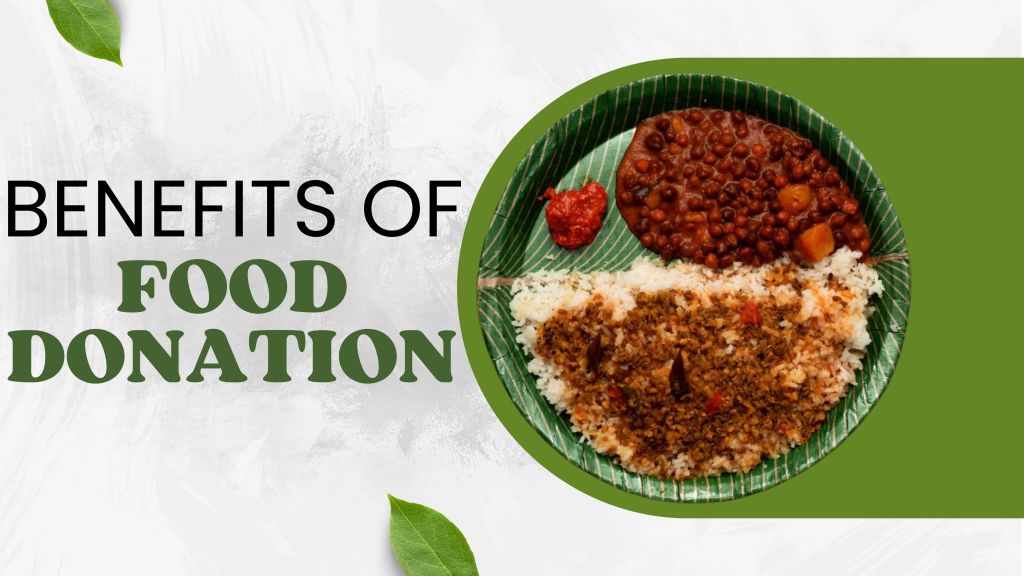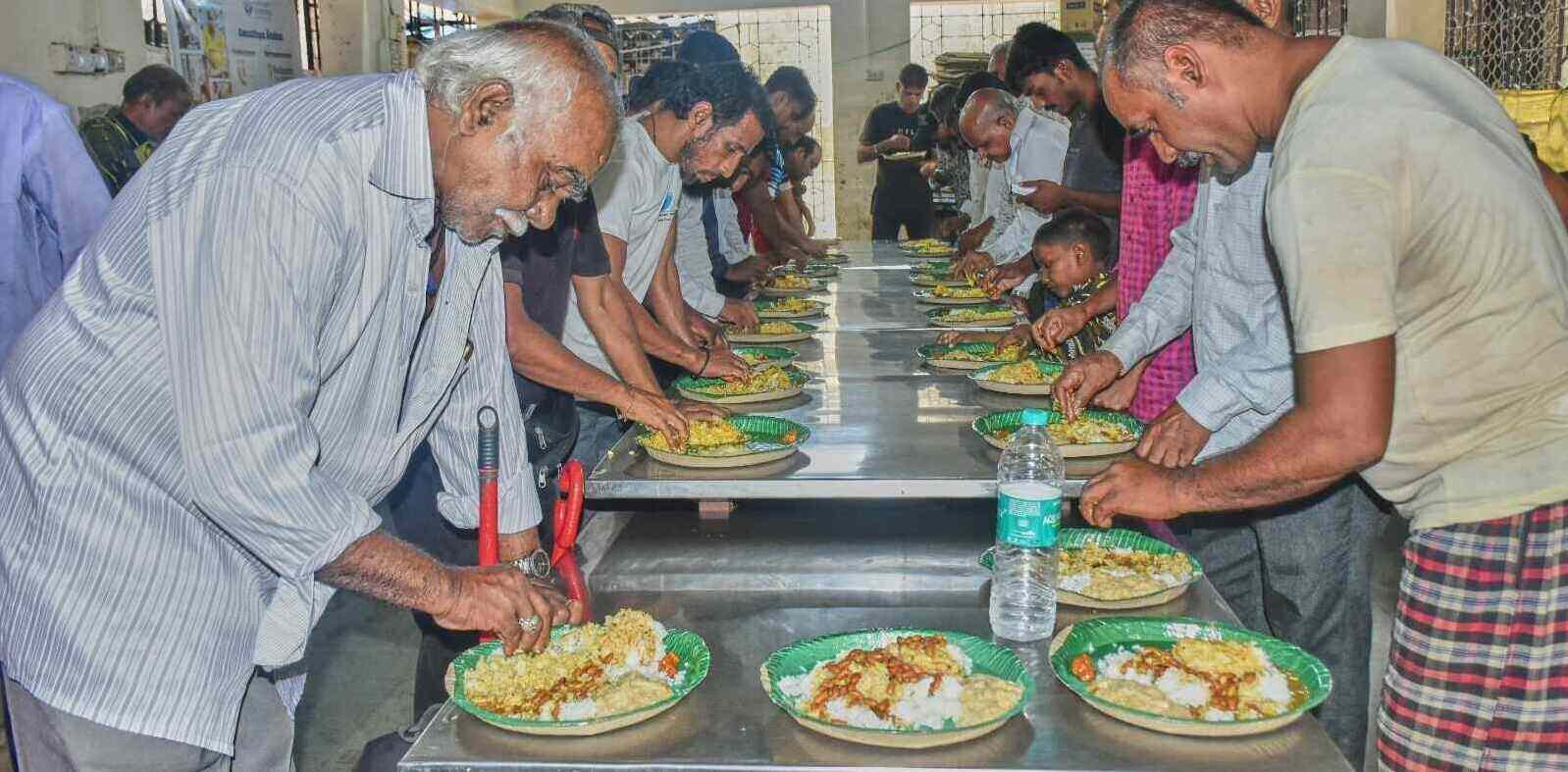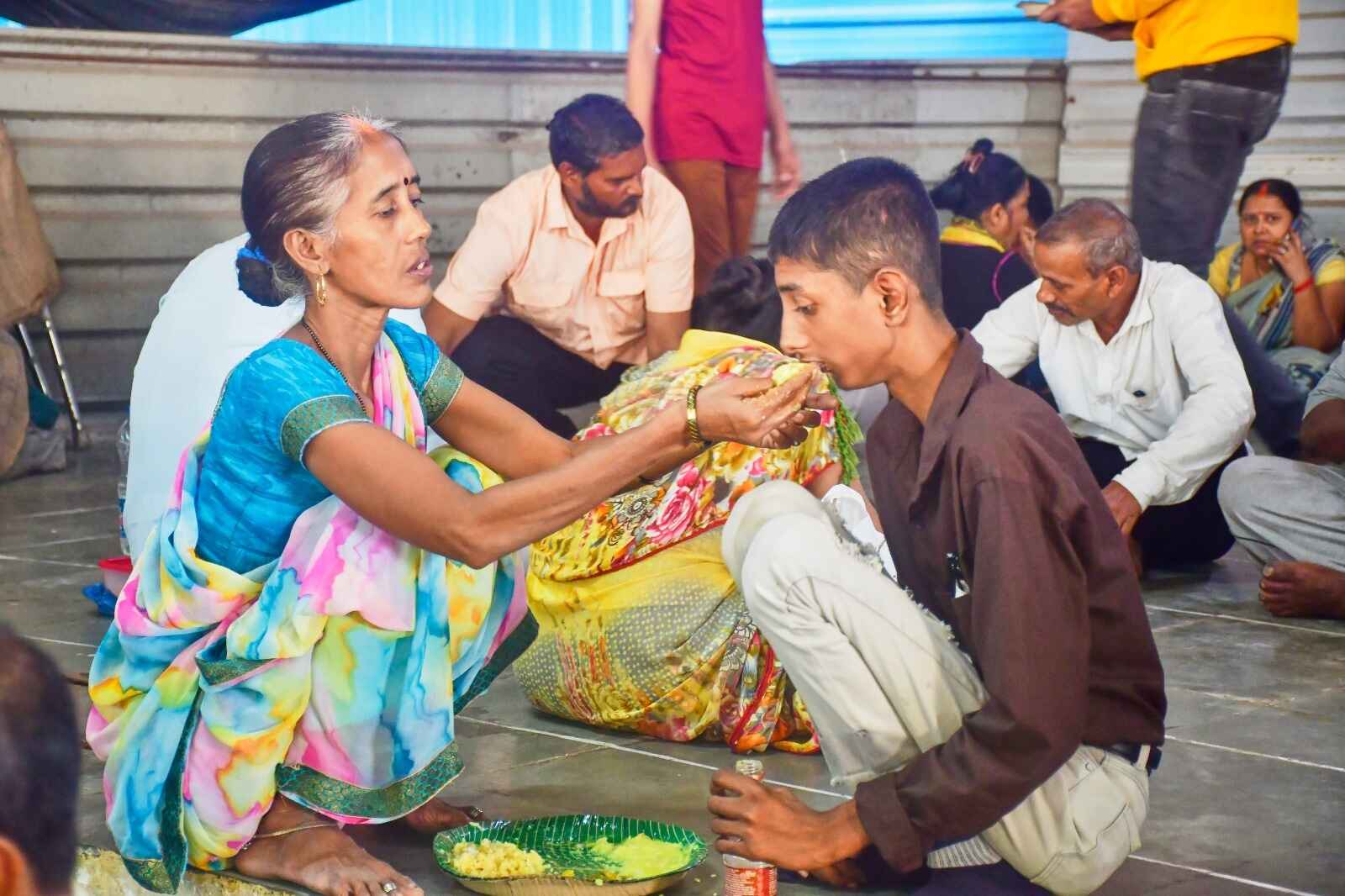Benefits of Food Donation
POSTED ON December 11, 2023 BY AKSHAYACHAITANYA

In a world where hunger remains a concerning issue, food donation emerges as a powerful tool to alleviate hunger. Charitable organizations dedicated to serving meals to the poor, like our own, recognize the various benefits of food donation. In this article, we will explore the profound impact that food donation by NGO can have on the lives of underprivileged people.
The following are some major benefits of Food Donation
- It feels good to work towards humanity: While there are several benefits of donating food to charity, and it may come across as a solely philanthropic activity, which it is for sure it is, but is also a great way of giving back to the society, and to express gratitude for being in a position from where you can offer to help. Spreading love through the goodness of food is one of the main objectives of food donation.
- Building Compassion: Food donation fosters compassion and empathy in society. It reminds us of the struggles that many face and encourages us to be more compassionate and generous.
- Alleviating Hunger: This is one of the most significant benefits of giving food to the poor. In a world where millions of people struggle to secure their next meal, food donation drives provide a much-needed lifeline to people in need.
- Good Health: The statistics of malnutrition and hunger in India are shocking. So, while we wish to target hunger and donate food, we must also consider that genuine help for the hungry will need an extra effort from us, i.e. to think about the nutritious value of the food. Donated food, when carefully selected, can provide essential nutrients that may be missing from the diets of those in need. Thoughtfully donating food to the poor can even contribute to improved physical and mental health.
- Building a supportive community: Food donation fosters a sense of community. It brings people from different backgrounds together with a shared goal of helping the hungry. So, apart from getting the benefits of food donation, people who are donating, also become a part of the community that understands the importance of food donation.
- Long-term Impact: Providing proper meals to people in need, without a plan, cannot meet the objectives of food donation. Charities can address not only immediate hunger but can develop long-term strategies to combat hunger.
Benefits of Donating Food via a trusted NGO
a. Efficient Distribution: Opting for a reputable NGO when donating food to those in need ensures that your contribution reaches the people in need. NGOs working towards providing help for the hungry, often have a food distribution system in place, along with the required infrastructure, ensuring that the right food gets to the right people, at the right time.
b. Quality Assurance: when you opt to donate through a reputed NGO, you can be assured of high-quality control. There is a specific system in place to ensure that the food items are fresh and safe and meet the nutritional standards that are necessary for reaping the benefits of donating food to charity. The well-being of beneficiaries is of utmost importance and the rigorous screening processes take out any potentially unsafe or expired product from the distribution list.
c. Their network allows for a wider outreach, to the marginalized and underprivileged populations who might otherwise go unnoticed. By choosing a trusted NGO like Akshaya Chaitanya, you can be confident that your food donation will make a meaningful difference and have a positive impact on those facing hunger.
Since we are talking about the benefits of food donation, a common question that comes to our minds is, what to donate? Here, we suggest donations online mindfully and opting for food items that can go a long way in helping those in need. Here are two
kinds of food items that we would like to address through this article:
i. Rice Donation: Rice holds a special place in the hearts of countless people in India since it’s a staple food in most regions, making it a great choice for donating food to the poor. It is a staple food item in many parts of India, providing a reliable source of sustenance for millions. The benefits of rice donation are not limited to its carbohydrate supply, but it extends to its adaptability in diverse regional cuisines, making it a universally accepted and cherished food item. When combined with other food items like lentils, it forms a balanced and nutritious diet. By ensuring that underprivileged families receive rice, charities can offer to provide nourishment that can support good health. The importance of rice donation in India lies not only in its immediate impact in addressing hunger but also in building healthier communities. Along with rice, you can opt for many non-perishable food items like spices and condiments, tea and coffee, grains or anything that doesn’t get spoiled too soon. While many preferred items can be added to meet the objectives of food donation, we also want to talk about leftover food for donation.
ii. Left Over Food: Donating leftover food items can be a great way to reduce environmental impact while becoming an essential part of the food donation drive. It helps reduce the environmental footprint of discarded food items, contributing to a greener planet. Utilizing and donating the leftover surplus food, such as catering leftovers, for donations ensures that no food goes to waste.
The importance of food donation cannot be overstated; it addresses a fundamental human right and is a critical tool in combating hunger. The objectives of food donation extend to creating a more equitable society, Whether you’re considering a leftover food donation or donating rice to a charitable organization, your contribution can have a profound impact. It’s not just
about providing a meal; it’s about creating a positive impact that touches lives and strengthens communities. Food donation is more than a gesture; it’s a powerful force for spreading goodness on earth.


_1748431751.jpg)